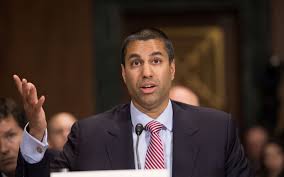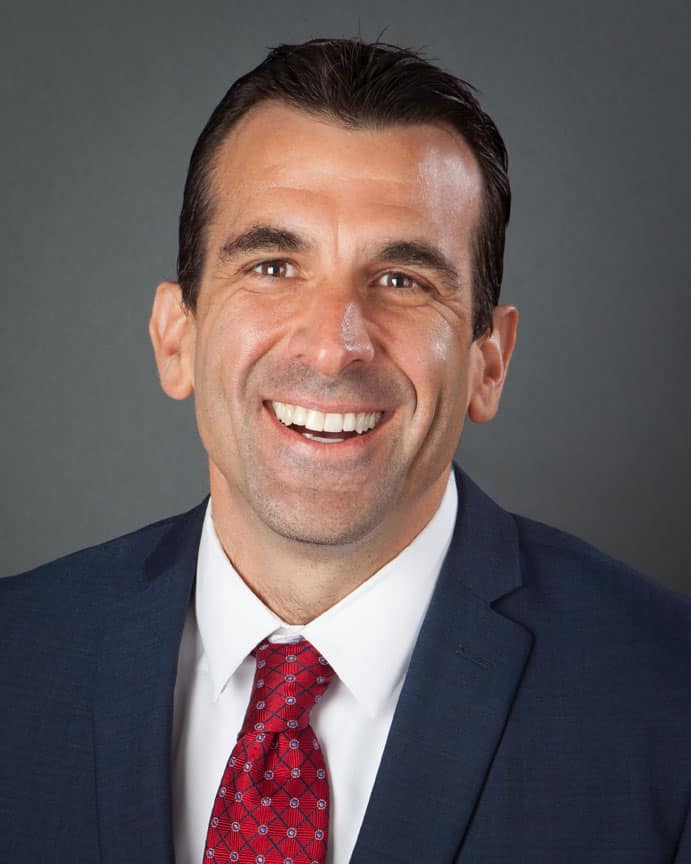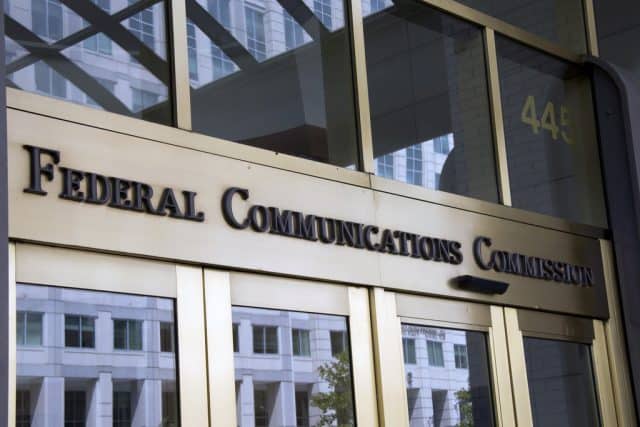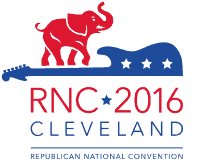
Welcome to Inn by the Sea, where relaxed coastal luxury comes naturally.
Come for the unpretentious elegance, but don’t stay for the broadband.
Time Warner Cable’s war on competitive broadband in the state of Maine tastes delicious, if you are a lawmaker who enjoys a $26 herb marinated skirt steak with roasted mushrooms, chimichurri, piquillo aioli, and herbed hand cut steak fries in the dining room of the Cape Elizabeth seaside resort Inn by the Sea. Time Warner Cable (and you) picked up the tab, and for those lawmakers too full to drive, the cable company was ready with complimentary rooms at the Inn that retail off-season for $205-355 a night.
 Welcome to the 2015 Time Warner Cable Winter Policy Conference, held Jan 22-23 at the remodeled resort and spa where a stay during the summer can cost $500 a day.
Welcome to the 2015 Time Warner Cable Winter Policy Conference, held Jan 22-23 at the remodeled resort and spa where a stay during the summer can cost $500 a day.
Thursday night’s dinner was followed by an all-day information lobbying event Friday — a workday when Maine lawmakers would normally be expected to serve the public interest, but served Time Warner Cable’s instead.
The overall theme of the conference: Defending Time Warner Cable’s performance in Maine and why letting community-owned providers compete with them is a really bad idea.
While lawmakers enjoyed complimentary access to the Inn by Sea’s high-speed Wi-Fi connection, Internet service around the rest of Cape Elizabeth is considerably less sublime, with Angie’s List reporting only 23 percent of the locals consider their broadband provider reliable. Maine itself is ranked 49th out of 50 states for quality of service and availability and no steak dinner will convince honest lawmakers the state is prepared with robust broadband required for the 21st century digital economy. Several members have introduced various measures to aid communities trying to move beyond DSL provided by FairPoint Communications and up to 50Mbps broadband from Time Warner Cable.
 The thought of competition is enough to give any cable lobbyist indigestion, especially if the new entrant provides fiber to the home service, something almost unknown among commercial providers in Maine.
The thought of competition is enough to give any cable lobbyist indigestion, especially if the new entrant provides fiber to the home service, something almost unknown among commercial providers in Maine.
Lawmakers caught attending the shindig claimed they attended the “educational forum” to become informed.
But a review of the presenter list suggests this was hardly a 60 Minutes/Edward R. Murrow moment. Lawmakers may not have been aware the presentations were about as balanced as a program length commercial:
- Moderator (Session 1): Jadz Janucik, National Cable & Telecommunication Association – The NCTA is the nation’s largest cable industry lobbying group;
- Dave Thomas, Sheppard Mullin Richter & Hampton LLP: A corporate attorney representing cable companies, particularly when they face competitive threats;
- Lisa Schoenthaler, National Cable & Telecommunication Association;
- Moderator (Session 2): Charlie Williams, Time Warner Cable;
- Charles Davidson and Michael Santorelli from the Advanced Communications Law and Policy Institute at New York Law School. Both have received direct compensation from Time Warner Cable for their “research” reports and are very active and frequent defenders of Time Warner Cable’s public policy agenda;
- Joe Gillan, Gillan Associates – an economist working under paid contract with the cable industry;
- Moderator (Session 3): Tom Federle, Federle Law: Chief lobbyist for Time Warner Cable in Maine for over seven years;
- Robin Casey, Enockever LLP: Casey is one of the nation’s pre-eminent cable industry lawyers, called by the Texas Cable Association “the authority on the telecom industry;”
- Mary Ellen Fitzgerald, Critical Insights: A Maine pollster hired by Time Warner Cable to carry out the company’s carefully worded survey on broadband issues;
- Moderator (Session 5): Melinda Poore, senior vice president of governmental relations, Time Warner Cable Maine.
 “If we want good public policy, there’s reason for all of us to be worried,” utilities expert Gordon Weil, the state’s first Public Advocate, who represented the interests of ratepayers before regulators, told the Maine Center for Public Integrity. Such treatment of legislators is “obviously intended to persuade them by more than the validity of the arguments; it’s intended to persuade by the reception they’re given.”
“If we want good public policy, there’s reason for all of us to be worried,” utilities expert Gordon Weil, the state’s first Public Advocate, who represented the interests of ratepayers before regulators, told the Maine Center for Public Integrity. Such treatment of legislators is “obviously intended to persuade them by more than the validity of the arguments; it’s intended to persuade by the reception they’re given.”
That sentiment was echoed in a glowing review from a Time Warner colleague given to Tom Federle, the company’s top lobbyist.
“Tom has been the primary lobbyist for Time Warner Cable’s Maine operations for the past seven years,” said Melinda Poole, an executive vice president for governmental relations at Time Warner Cable. “He has a real knack for distilling complex issues for policy makers, has always been able to advance our positions effectively, and consistently has outperformed for us. Tom is well respected by legislators on both sides of the aisle.”
Lawmakers contacted by the Maine Center for Public Integrity seemed to sidestep or downplay the ethical issues of attending the company-sponsored event.
“I think this idea of meals and conversations is how Augusta functions on some level,” said Rep. Mark Dion (D-Portland), who attended the event in Cape Elizabeth, did not stay overnight but was provided dinner and breakfast by Time Warner.
Sen. Andre Cushing (R-Hampden), for whom Time Warner paid the cost of meals and the room, said he thought “about a dozen” legislators attended the Thursday night dinner. Dion said “30 or 35″ attended the second day’s sessions.
 Scott Pryzwansky, Time Warner Cable’s director of public relations for the eastern U.S., declined to answer any specific questions but replied by email: “As one of Maine’s leading employers and telecommunications companies, we designed this second biannual educational forum to help policymakers and others better understand some of the complex telecommunications issues confronting Maine and the nation.”
Scott Pryzwansky, Time Warner Cable’s director of public relations for the eastern U.S., declined to answer any specific questions but replied by email: “As one of Maine’s leading employers and telecommunications companies, we designed this second biannual educational forum to help policymakers and others better understand some of the complex telecommunications issues confronting Maine and the nation.”
Critics contend such “educational” meetings held at posh locations where company lobbyists hand out free meals and room keys do more to obfuscate than clarify issues for lawmakers, who are likely to remember the accommodations and who provided them more than the seminar.
“I would have said, ‘Fine, if you want to meet with me, come meet on state facilities, no steak dinner,’ said Weil. “If steak dinners didn’t work, they wouldn’t give them steak dinners.”
Time Warner Cable’s two-day event included a packet of handouts, obtained by Stop the Cap!, that illustrate exactly how one-sided the affair was:
 A highly slanted (refuted here) presentation opposing “Government Operated Networks” (or GONs – a favorite acronym used by industry-funded think tanks to oppose municipal broadband) produced by the Advanced Communications Law and Policy Institute;
A highly slanted (refuted here) presentation opposing “Government Operated Networks” (or GONs – a favorite acronym used by industry-funded think tanks to oppose municipal broadband) produced by the Advanced Communications Law and Policy Institute;- an NCTA-produced sheet opposing taxes on Internet access;
- a Time Warner Cable-written summary of recent Maine Public Utility Commission conclusions about the availability of affordable telephone service;
- a guest letter to the editor from Fred Campbell, who has a long history running industry-funded groups that are supposed to advocate for competition, except when an industry friend’s merger deal is on the line;
- and a blog post from the Koch Brothers-funded corporate-friendly Reason.com.
The slanted push-poll part of the presentation was also unsurprisingly predictable.
“Do you approve or disapprove of the current practice of Maine’s government using tax dollars and fees on consumers to subsidize public entities to compete with private businesses?” asked one question.
Another asked if residents would favor “using taxpayer supported debt to build government-owned broadband networks,” ignoring the fact many projects are covered by bonds that carry little or no risk to taxpayers. Some profitable projects could even return money to local communities.
At least one lawmaker was quickly skeptical of the veracity of the company-sponsored poll.
State Rep. Sarah Gideon (D- Freeport) said some of the questions were “leading.”
“Nobody’s going to say ‘Yes, I want my state to incur debt,’” said Gideon. “We see lots of surveys as policymakers and we have to be smart enough to look at what questions are asked.”
Since 2008, Time Warner has donated more than $240,000 to Maine politicians: $127,360 to Democrats and Democratic PACs, and $113,250 to Republicans and Republican PACs. Most of the minor improvements in the state’s broadband rankings since 2013 come from community providers providing a quantum speed leap over traditional DSL and cable broadband services most Maine residents receive.

 A representative from Comcast worried that the BDAC’s work has been so polarized towards the telecom industry, excluded state and local officials will have every reason to resist the BDAC’s findings and recommendations and refuse to adopt them.
A representative from Comcast worried that the BDAC’s work has been so polarized towards the telecom industry, excluded state and local officials will have every reason to resist the BDAC’s findings and recommendations and refuse to adopt them.

 Subscribe
Subscribe
 “When I called [the FCC] to check on the status of the BDAC selection process [earlier this year] and identified myself as an employee from the City of Santa Monica, the gentleman on the phone laughed hysterically,” Carter said. “At first I didn’t get the joke. When I saw the appointees for the municipal working group—only three out of 24 positions were from local government—I got the joke.”
“When I called [the FCC] to check on the status of the BDAC selection process [earlier this year] and identified myself as an employee from the City of Santa Monica, the gentleman on the phone laughed hysterically,” Carter said. “At first I didn’t get the joke. When I saw the appointees for the municipal working group—only three out of 24 positions were from local government—I got the joke.” CPI spoke with many local officials who asked to participate as a member of BDAC, but were turned down:
CPI spoke with many local officials who asked to participate as a member of BDAC, but were turned down: President Donald Trump promised voters during last summer’s Republican National Convention that he would ‘not look the other way’ and ignore Washington politicians that have “sold out to some corporate lobbyist for cash.”
President Donald Trump promised voters during last summer’s Republican National Convention that he would ‘not look the other way’ and ignore Washington politicians that have “sold out to some corporate lobbyist for cash.” Corporate interests were nervous about sponsoring the 2016 Republican convention that was widely expected to choose Mr. Trump as the Republican candidate. Corporate interests
Corporate interests were nervous about sponsoring the 2016 Republican convention that was widely expected to choose Mr. Trump as the Republican candidate. Corporate interests 
 While planning to quietly drop Time Warner Cable’s budget-minded, unrestricted $14.99 Everyday Low Price Internet package after it acquires the company, Charter Communications is celebrating a “new and improved” low-income Internet offer that will likely discriminate against current customers while protecting company profits.
While planning to quietly drop Time Warner Cable’s budget-minded, unrestricted $14.99 Everyday Low Price Internet package after it acquires the company, Charter Communications is celebrating a “new and improved” low-income Internet offer that will likely discriminate against current customers while protecting company profits.
 Among the most onerous restrictions, Charter plans to protects itself from revenue cannibalization by prohibiting existing broadband customers from paying less by signing up for Charter’s new discounted plan. Customers will have to voluntarily drop Bright House/Charter/Time Warner Cable Internet service for at least 60 days before they can apply for Charter’s new low-cost option.
Among the most onerous restrictions, Charter plans to protects itself from revenue cannibalization by prohibiting existing broadband customers from paying less by signing up for Charter’s new discounted plan. Customers will have to voluntarily drop Bright House/Charter/Time Warner Cable Internet service for at least 60 days before they can apply for Charter’s new low-cost option.

 Welcome to the 2015 Time Warner Cable Winter Policy Conference, held Jan 22-23 at the remodeled resort and spa where a stay during the summer can cost $500 a day.
Welcome to the 2015 Time Warner Cable Winter Policy Conference, held Jan 22-23 at the remodeled resort and spa where a stay during the summer can cost $500 a day. The thought of competition is enough to give any cable lobbyist indigestion, especially if the new entrant provides fiber to the home service, something almost unknown among commercial providers in Maine.
The thought of competition is enough to give any cable lobbyist indigestion, especially if the new entrant provides fiber to the home service, something almost unknown among commercial providers in Maine. “If we want good public policy, there’s reason for all of us to be worried,” utilities expert Gordon Weil, the state’s first Public Advocate, who represented the interests of ratepayers before regulators, told the Maine Center for Public Integrity. Such treatment of legislators is “obviously intended to persuade them by more than the validity of the arguments; it’s intended to persuade by the reception they’re given.”
“If we want good public policy, there’s reason for all of us to be worried,” utilities expert Gordon Weil, the state’s first Public Advocate, who represented the interests of ratepayers before regulators, told the Maine Center for Public Integrity. Such treatment of legislators is “obviously intended to persuade them by more than the validity of the arguments; it’s intended to persuade by the reception they’re given.” Scott Pryzwansky, Time Warner Cable’s director of public relations for the eastern U.S., declined to answer any specific questions but replied by email: “As one of Maine’s leading employers and telecommunications companies, we designed this second biannual educational forum to help policymakers and others better understand some of the complex telecommunications issues confronting Maine and the nation.”
Scott Pryzwansky, Time Warner Cable’s director of public relations for the eastern U.S., declined to answer any specific questions but replied by email: “As one of Maine’s leading employers and telecommunications companies, we designed this second biannual educational forum to help policymakers and others better understand some of the complex telecommunications issues confronting Maine and the nation.” A highly slanted (
A highly slanted (
 Let us review:
Let us review: